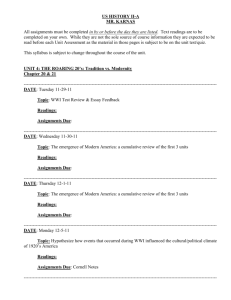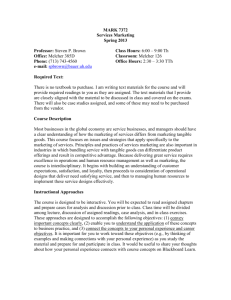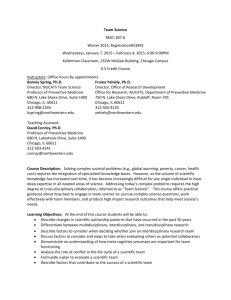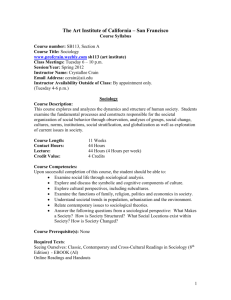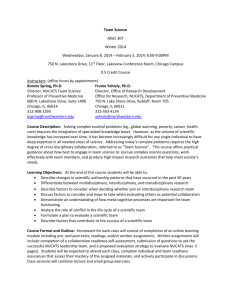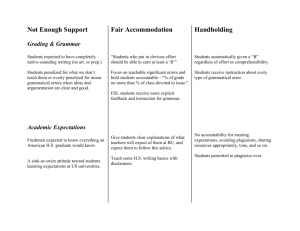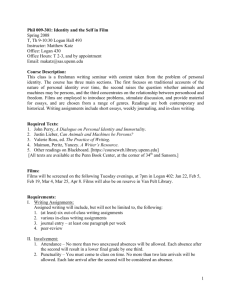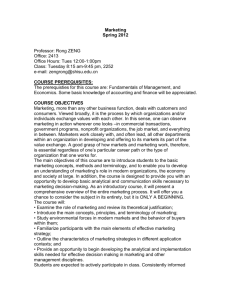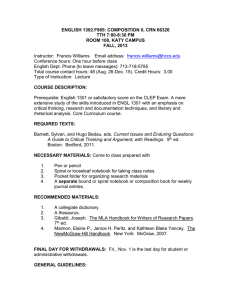INFO 863 - Topics in Information Systems
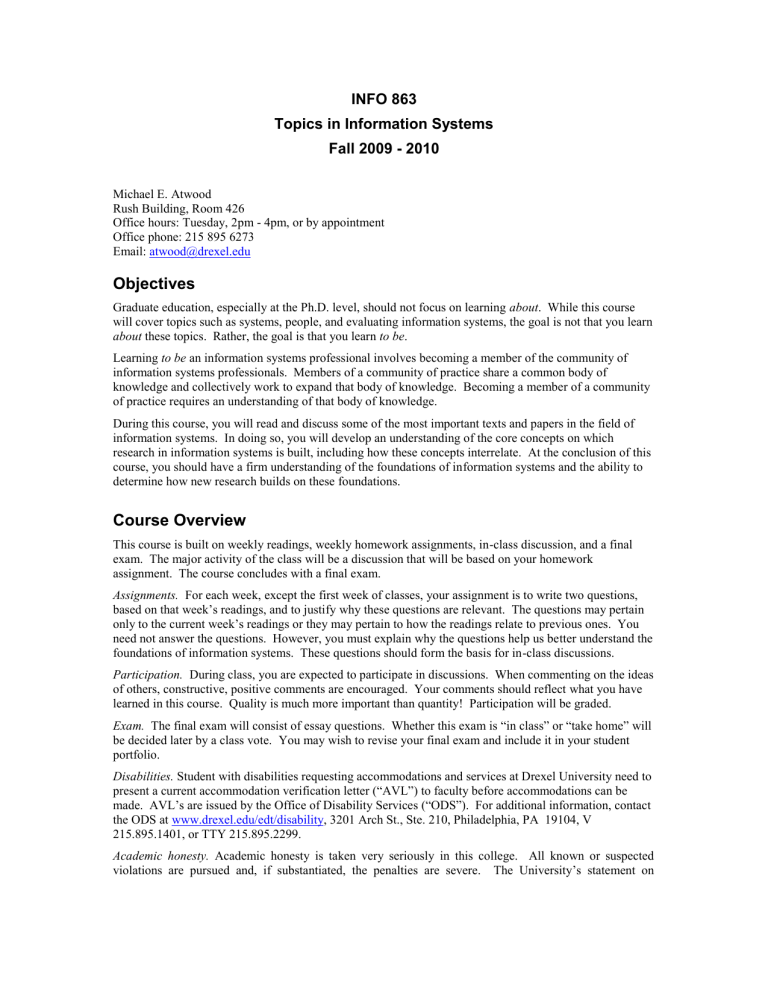
INFO 863
Topics in Information Systems
Fall 2009 - 2010
Michael E. Atwood
Rush Building, Room 426
Office hours: Tuesday, 2pm - 4pm, or by appointment
Office phone: 215 895 6273
Email: atwood@drexel.edu
Objectives
Graduate education, especially at the Ph.D. level, should not focus on learning about . While this course will cover topics such as systems, people, and evaluating information systems, the goal is not that you learn about these topics. Rather, the goal is that you learn to be .
Learning to be an information systems professional involves becoming a member of the community of information systems professionals. Members of a community of practice share a common body of knowledge and collectively work to expand that body of knowledge. Becoming a member of a community of practice requires an understanding of that body of knowledge.
During this course, you will read and discuss some of the most important texts and papers in the field of information systems. In doing so, you will develop an understanding of the core concepts on which research in information systems is built, including how these concepts interrelate. At the conclusion of this course, you should have a firm understanding of the foundations of information systems and the ability to determine how new research builds on these foundations.
Course Overview
This course is built on weekly readings, weekly homework assignments, in-class discussion, and a final exam. The major activity of the class will be a discussion that will be based on your homework assignment. The course concludes with a final exam.
Assignments.
For each week, except the first week of classes, your assignment is to write two questions, based on that week’s readings, and to justify why these questions are relevant. The questions may pertain only to the current week’s readings or they may pertain to how the readings relate to previous ones. You need not answer the questions. However, you must explain why the questions help us better understand the foundations of information systems. These questions should form the basis for in-class discussions.
Participation.
During class, you are expected to participate in discussions. When commenting on the ideas of others, constructive, positive comments are encouraged. Your comments should reflect what you have learned in this course. Quality is much more important than quantity! Participation will be graded.
Exam.
The final exam will consist of essay questions. Whether this exam is “in class” or “take home” will be decided later by a class vote. You may wish to revise your final exam and include it in your student portfolio.
Disabilities.
Student with disabilities requesting accommodations and services at Drexel University need to present a current accommodation verification letter (“AVL”) to faculty before accommodations can be made. AVL’s are issued by the Office of Disability Services (“ODS”). For additional information, contact the ODS at www.drexel.edu/edt/disability , 3201 Arch St., Ste. 210, Philadelphia, PA 19104, V
215.895.1401, or TTY 215.895.2299.
Academic honesty.
Academic honesty is taken very seriously in this college. All known or suspected violations are pursued and, if substantiated, the penalties are severe. The University’s statement on
Academic Honesty is in Chapter 10 of the Student Handbook . Familiarize yourself with this statement.
Ignorance of what constitutes academic dishonesty is not an acceptable defense!
The most common problem is plagiarism. Plagiarism is the representation of someone else's work as your own. Thus if your individual assignment appears to me to be identical or highly congruent to another student's assignment, I must assume that each of you is representing the other's work as your own. Also, if your assignments include material which was copied from a book, journal, or an electronic publication
(e.g., a web page), and the source of that material was not accurately attributed, then you have effectively represented someone else's work as your own.
Classroom recording . Lectures may be recorded and/or streamed and rebroadcast for educational purposes only.
Grade breakdown
Assignments 50
In-class Participation 25
Final Exam 25
Readings
Week 1: September 22 introduction
We will start with a discussion of the overview and objectives of this course. Each student will also be asked to introduce themselves.
Week 2: September 29 what is science?
Simon, H.A. Sciences of the artificial (third edition). MIT Press, 1996. (1,2,3,4,5,8)
Week 3: October 6 information has a social life?
Brown, J.S. & Duguid, P. The social life of information.
Harvard Business School Press, 2000.
Week 4: October 13 who is the designer?
Alexander, C. The timeless way of building.
Oxford University Press; 1979.
Week 5: October 20 how do you learn?
Schön, D.A. Educating the reflective practitioner. Jossey-Bass; 1990.
Week 6: October 27 do systems really bite back?
Tenner, E. Why things bite back: Technology and the revenge of unintended consequences.
Vintage, 1997.
(1,8,9,10,11,12)
Week 7: November 3 what’s special about software?
Brooks, F. The Mythical man-month: Essays on software engineering . Addison-Wesley, 1995.
Week 8: November 10 the information revolution?
Benkler, Y. The wealth of networks . Yale University Press, 2006. (Part One intro, 2,3,5,10,12) Also available at http://www.benkler.org/
Week 9: November 17 what will the future look like?
Burke, J. & Ornstein, R. The axemaker’s gift: Technology’s capture and control of our minds and culture.
Tarcher Penguin, 1997. (1,2,3,10,11)
Week 10: November 24 (Thanksgiving holiday; no class)
Week 11: December 1 what is science?
Stokes, D.E. Pasteur’s quadrant: Basic science and technological innovation?
Brookings Institution Press,
1997. (1,2,3)

